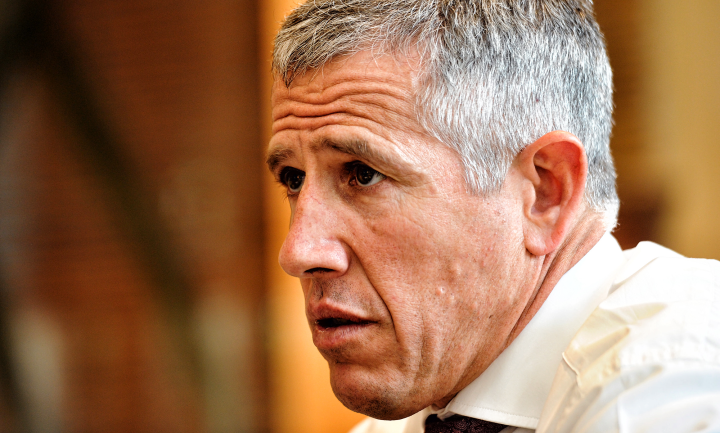BUSINESS MAVERICK 168
Ninety One rides rough seas

In six months of being listed, Ninety One has weathered all manner of market storms, including a global pandemic and a market crash. If anything, this has prepped the asset manager for any heavy weather ahead.
First published in Daily Maverick 168
Asset manager Ninety One unbundled from Investec and listed on the JSE in March – during one of the most dramatic market crashes in recent history. In barely four trading days, the Dow Jones Industrial Average plunged 26%. This was mirrored in markets across the world as fears about the looming impact of the coronavirus caused investors to panic.
It was not an auspicious time to list. And what followed was arguably one of the toughest six months in global markets as the shutdown of the global economy caused economies to contract by 3%-8%.
“All of us in the financial industry go by the grace of Jerome Powell,” Hendrik du Toit, CEO of Ninety One says. “If the US’s Federal Reserve had not unlocked credit markets as fast they did, this would have been a very bad period. But the system has been held together.”
The newly listed firm weathered its stormy first six months as a listed entity and with the publication of its results for the six months to September 2020, announced it would pay a maiden dividend of 5.9p/share, in line with its policy.
The market turbulence meant Ninety One experienced half-yearly outflows for the first time since the second half of the 2017 financial year, of £0.3-billion. This was due to outflows in Europe, the UK and the Americas. On the contrary, in its home market of South Africa, where the company has a 30-year track record, it performed ahead of expectations, as it did in the Asia-Pacific region.
“In Latin America, we lost institutional mandates as investors changed strategy, while in North America nervous investors opted to go with firms and brands that they know well – it is a difficult time to build relationships,” says Du Toit.
Assets under management grew by 18%, to £119-billion, at the end of September, up from the £103-billion reported in March but level with the £120-billion reported in September 2019. Fund performance, the driver of future fund flows, has improved. During the first half of the 2020 financial year, short- and longer-term firm-wide investment performance improved significantly.
As at the end of September 2020, one- and three-year outperformance stood at 76% and 70% respectively – in other words, 76% and 70% of total mandates outperformed their benchmark. This compared favourably with the numbers for the year ended 31 March 2020 – 39% and 55% for one- and three-year firm-wide outperformance respectively.
The company’s adjusted operating revenue was steady at £289-million, while profit before tax was up 3% year-on-year to £94.8-million and operating margins steady at 33%.
In the same period, Ninety One has seen its share price increase from R32.90 at listing, to R46.62, a 42% increase. In the process, the company’s market capitalisation has surged past that of its former stablemate, Investec, supporting the idea that a demerger would unlock value and set the asset manager on a growth trajectory.
While the second half of the year remains uncertain, Du Toit notes that the world has regained some composure.
“We are seeing a resumption of saving, especially in the mutual fund market. The trend is ‘out with the second homes and in with investments’. People are taking their savings seriously.”
Asset managers, as Du Toit knows only too well, are only as good as their underlying investment performance. And he is well aware that the environment is set to get tougher as the pressure on fees intensifies and as the world enters what is expected to be a low-return environment.
Market performance has been divorced from economic performance for the better part of this year, but this cannot continue indefinitely. Du Toit believes that the time has come for fiscal policymakers to step up to the plate.
“Central bank interventions have largely derisked the environment, but they are reaching their limits; the world cannot be on the drug of perpetual easing indefinitely. The next chapter is fiscal, not monetary.”
However, he remains sceptical, in this nationally-charged world, about the quality of global policy coordination.
“The big difference between today and 2008 is the major lack of coordination of policymakers. Political forces are driving everyone apart. It takes leadership to know the difference between appeasing one’s domestic base and knowing what is good for your country. That is the risk in the world.”
Under these circumstances, companies with a sound capital base, capital lite balance sheet and a coherent policy and objectives are perhaps better placed.
“It is time to stay calm, stick to our discipline and not chop and change,” Du Toit says. DM168/BM
















 Become an Insider
Become an Insider
Comments - Please login in order to comment.